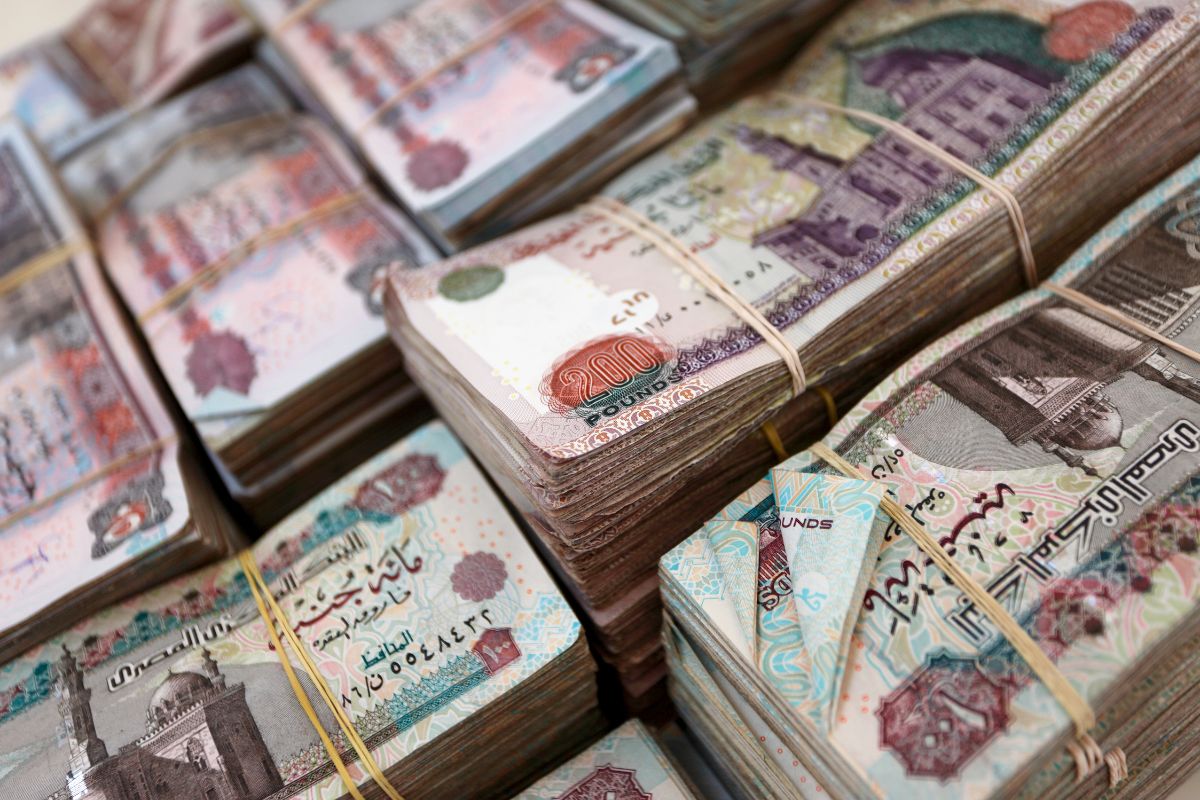IMF Approves $2.5bn In Funding For Egypt, Backs Climate Finance Initiative

The International Monetary Fund (IMF) has approved a combined $2.5 billion in financing for Egypt, completing the fourth review of the country’s economic reform programme despite “mixed progress” on structural reforms, the fund announced on Tuesday.
The IMF’s executive board released $1.2 billion from Egypt’s existing $8 billion Extended Fund Facility (EFF) arrangement, bringing total disbursements to $3.2 billion since the loan programme began in December 2022.
In addition, the board approved a new $1.3 billion arrangement under the IMF’s Resilience and Sustainability Facility (RSF) to support Egypt’s climate change initiatives and accelerate decarbonisation efforts.
“The Egyptian authorities have continued to implement key policies to preserve macroeconomic stability, despite ongoing regional tensions that had caused a sharp decline in Suez Canal receipts,” the IMF said in its statement.
Economic recovery amid regional challenges
The fund noted that Egypt’s GDP growth slowed to 2.4 per cent in fiscal year 2023/24, down from 3.8 per cent in the previous year, but has since rebounded to about 3.5 per cent in the first quarter of the current fiscal year.
Meanwhile, inflation has been trending downward since September 2023, with the latest data showing annual headline inflation dropping to 12.8 per cent in February.
Trade disruptions in the Red Sea since December 2023 have reduced foreign exchange inflows from the Suez Canal by $6 billion in 2024, while the ongoing war in neighbouring Sudan has led to a substantial influx of refugees, putting additional pressure on Egypt’s economy.
“Despite progress, risks remain significant and skewed to the downside,” said Nigel Clarke, IMF Deputy Managing Director. “The economic outlook is vulnerable to external shocks and domestic policy challenges.”

Recalibrated fiscal targets
In recognition of difficult external conditions, the IMF approved a recalibration of Egypt’s medium-term fiscal commitments. The primary balance surplus, excluding divestment proceeds, is now expected to reach 4 per cent of GDP next fiscal year—half a percentage point less than earlier programme commitments.
The fund emphasised that strengthening fiscal sustainability requires more effective domestic revenue mobilisation, a comprehensive debt management strategy, and accelerated divestment of state assets.
“Decisively reducing the state’s footprint, levelling the playing field, allowing energy prices to reach cost recovery levels, and addressing governance and transparency issues will enable the private sector to become the primary engine of growth,” Clarke added.
Exchange rate flexibility remains crucial
The IMF highlighted that Egypt’s shift to a flexible exchange rate regime in March 2024 has “continued to produce positive results,” including the elimination of parallel market gaps and backlogs of unmet import demands. However, it noted that “the exchange rate fluctuates within a limited range.”
“Maintaining a liberalised foreign exchange system in the context of a flexible exchange rate regime is critical to avoid the buildup of external imbalances,” the statement highlighted, with directors underlining the importance of allowing the currency to move freely in response to market forces.

Egypt has devalued its currency by nearly 70 per cent since March 2022 as part of its IMF-backed reform programme.
Climate financing initiative
The newly approved RSF arrangement marks Egypt’s first participation in the IMF’s climate financing programme, designed to support key reforms that address climate vulnerabilities and enhance economic resilience.
“The authorities’ efforts to implement medium-term macro-critical reforms to address climate change is welcome,” the IMF said, noting that the arrangement will support reforms to accelerate decarbonisation, strengthen environmental risk management, and assess the effects of investment plans on achieving resilience.
The fifth review of Egypt’s EFF programme is expected to take place later this year.
Emicool Secures First-ever Green Financing To Boost Sustainable Growth
The liquidity generated will be strategically deployed to accelerate the company’s district cooling projects across t... Read more
UAEs Ruya Becomes First Global Islamic Bank To Offer Shariah-compliant Crypto Trading
Digital Islamic bank ruya teams up with Fuze to offer secure, ethical crypto investments aligned with Islamic financial... Read more
Startups In Abu Dhabis Hub71 Secured $2.17bn In Funding Last Year
Hub71 startups in Abu Dhabi saw massive increase in funding in 2024 as innovation economy thrives Read more
UAE Fintech Pay10 First To Launch On Central Banks Open Finance Framework
The company has acknowledged the Central Bank of the UAE's crucial role in facilitating a responsible and secure rollou... Read more
PayPal Expands In MEA Region With Its Newly Launched Hub In Dubai
Will serve 80 countries in Middle East and Africa from its Dubai Internet City hub; Has signed several deals with regio... Read more
New Board Certifies DMCC Tradeflow As Fully Shariah Compliant
Shariah Supervisory Board appointed to oversee Tradeflow’s Islamic finance offering; Certified fully-compliant with A... Read more

